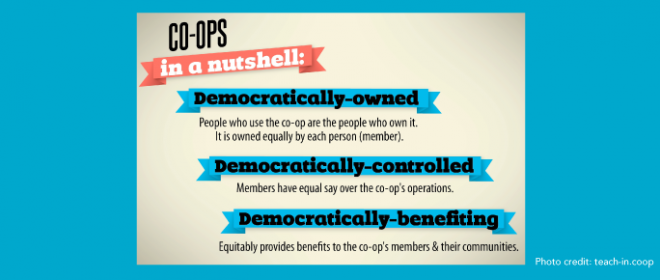Co-operatives Explained
What’s A Co-operative?

A Different Model for Business, Unlike Our Predatory Corporations, Shadow Banks and Secret Hedge Funds.
Co-ops are based on values not unlike those we subscribe to individually, including self-responsibility, democracy, equality, honesty and social responsibility.
In addition to these common values, seven basic principles serve as guidelines to provide a democratic structure for co-ops around the world. While adoption of these principles is not required, most co-ops choose to adopt them for their business.
| The Seven Principles |
|---|
| Voluntary and open membership |
| Democratic member control |
| Member economic participation |
| Autonomy and independence |
| Education, training and information |
| Cooperation among cooperatives |
| Concern for community |
Co-ops come in all forms and sizes. They are generally categorized by the industry they operate in, known as the co-op’s sector, and the structure of their membership, known as the co-op’s type. In the United States alone, there are more than 29,000 co-ops, representing over $3 trillion in assets, and generating over $500 billion in revenue and $25 billion in wages. For information on co-op sectors, types, economic impact, and more, visit the National Cooperative Business Association’s website.


